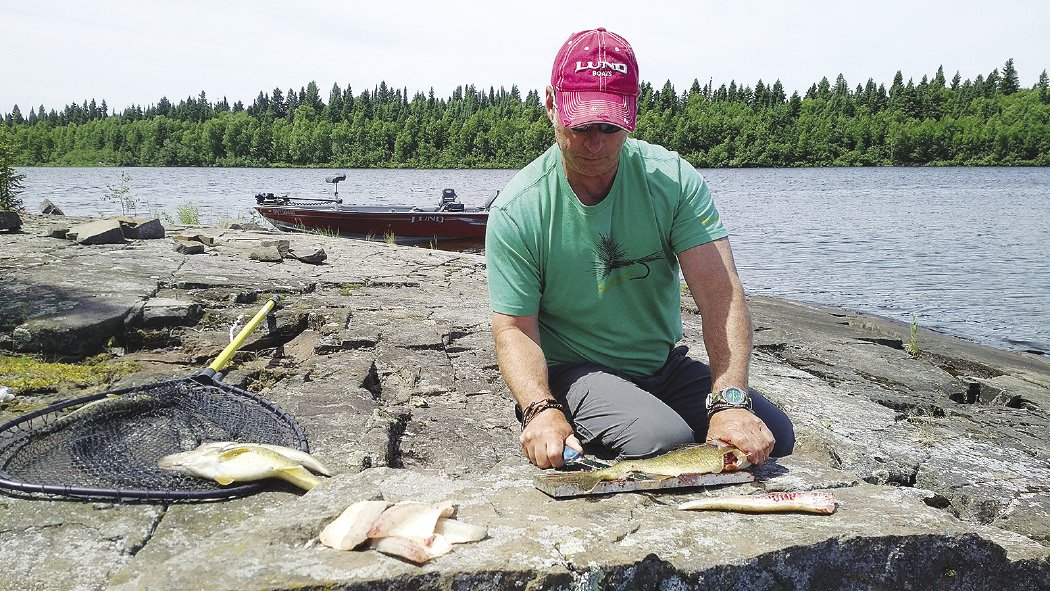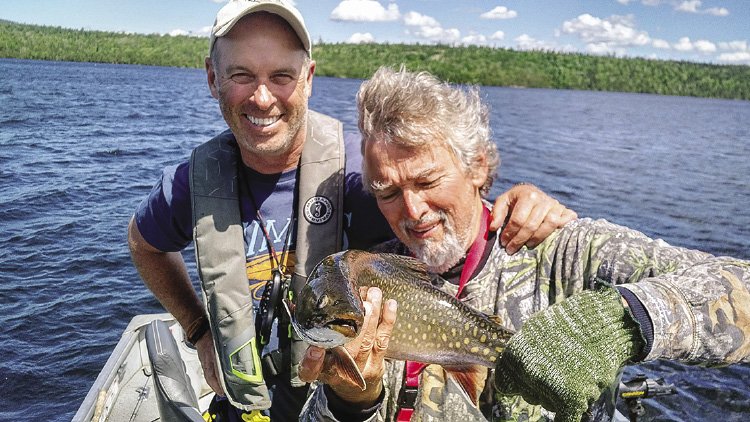Long before I ever began working as a guide, I used their services. I have fished with dozens of guides from coast to coast, in the states and Canada, in salt water and fresh.
Guides are helpful for an angler because they can shorten the learning curve and increase your chance of success. The best fishing guides are on the water regularly, know what the fish are doing and when, and can help you be in the place that will best allow you to connect. What guides can’t do is perform miracles. If you want to catch a giant brook trout on a fly, but have never fly fished, this may be a problem. If you are prone to sea sickness, but want to spend a day chasing salmon on Lake Superior, you might want to stock up on Gravol. The more honest you are about your skill level, and your health issues—if any—the better it is for the guide. Guides want you to have the best experience possible. So, let’s talk about a few ways to decide if a guide is right for you.
Choosing a Guide
There are a lot of variables when it comes to choosing a fishing guide. In some instances—at remote lodges for instance—you may have the guide chosen for you. That doesn’t mean you won’t have any say, but many times at lodges or resorts, the guides are designated to a party. A good guide will have a chat with the client before the trip to see what they want to do, what their expectations are, and if there are any health or dietary issues. A guide’s job is to put you on fish, but to also keep you safe and healthy. If you are not asked these questions, then make sure you ask the guide. Guiding is a paid service, and as a client, you will want to get the most out of your experience.
If you are hiring a guide for a day trip, or for a few days, and you have a few options available, don’t be afraid to reach out. Guides are usually available via messenger, phone or email. The majority of active guides have social media accounts, wither personal or business. Most guides are willing to chat with prospective clients, as long as the chats are not overly long and repeated. Generally, a guide will have a specialty—muskie fishing for instance—but can do a few other types of angling as well. A quick chat will give you a good idea what to expect and what you need to bring.
It should be noted that not all guides do the same thing. Some do shore lunch and some don’t. Some guides are no kill on certain species, and this is usually discussed beforehand. As a personal example, I don’t allow the harvest of wild brook trout when I am guiding on the Nipigon. If you get a legal laker or salmon, and want to eat it, fine. People who are not cool with no kill on brookies don’t go fishing with me. So, this is the kind of stuff that can be hashed out in a few minutes over messenger or phone. Find out what you need, if the fishing gear is supplied or not, and whether food is included as part of the trip. If it’s a boat trip, the odds are all the safety gear will be on board, but it never hurts to ask about bringing a life jacket, etc. If you are stream/river fishing, you should find out whether hip/chest waders are required. Always bring rain gear, no matter what. I am constantly amazed when clients show up with no rain gear.

Most guides will also provide a couple of names of clients you can check with for recommendations. Obviously, these people are likely going to provide you a positive recommendation, but it’s not a bad thing to chat with former clients. They will let you know things you might not be aware of, like whether the guide smokes or allows it. You can also get a sense of what to expect from a guided day from a client perspective.
Payment/Tipping
Lodges generally include the cost of the guide/boat fee in the daily guiding fee. The guide is then paid by lodge or resort. However, it never hurts to ask the guide what the arrangement is. Guides who work on their own may want a down payment for a trip and will take the rest of the fee at the end of the trip. This is becoming more common as people not showing up for trips happens more frequently when there has been no money laid down. As for tipping, it varies a bit, but the general 15 to 20 percent tip that you would leave for a server generally works for guiding. Obviously, if the guide did not work as hard as you think they should have, you can choose not to tip. And if the guide has blown your mind with their charm, skill and intellect, you can be more generous. Most guides will do everything in their power to make your day enjoyable and a success. They want you to come back.
Expectations
One note about expectations when guiding. As mentioned earlier, guides can do a lot of stuff, but they can’t make fish bite, they can’t stop the rain and they can’t make a poor/mediocre fisherman a good one in 7.5 hours. They will try, and God knows I’ve been there. But when a guided fishing day does not go perfectly, remember the huge number of factors are underway. Try and enjoy all the amazing things about a day of guiding, including the incredible beauty of northwestern Ontario, and the experience you are having. Hopefully, a few memorable fish will be thrown in the mix.




